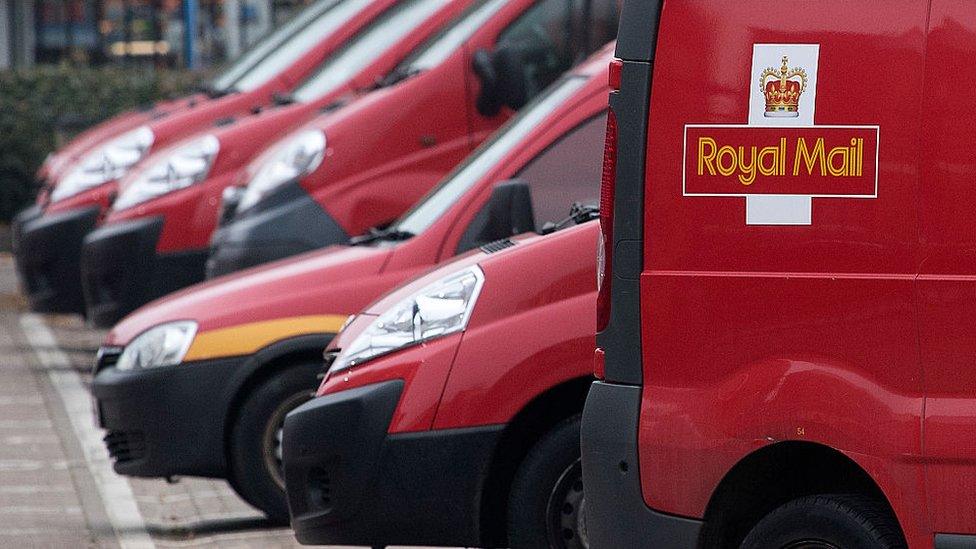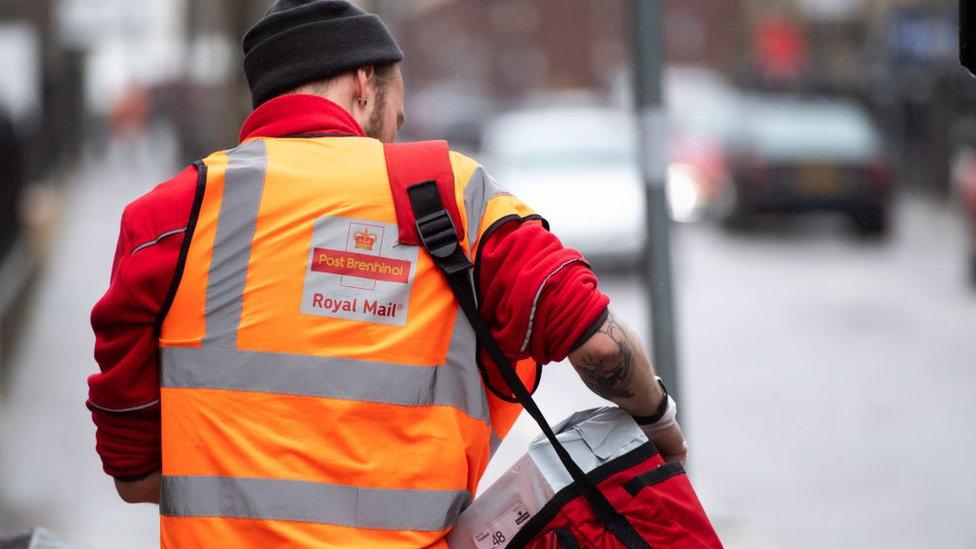Royal Mail to cut 2,000 jobs as virus hits business
- Published
- comments

Royal Mail is to cut 2,000 management jobs as it struggles to deal with the effects of the coronavirus crisis.
The cuts, about a fifth of the company's management roles, aim to save about £130m in costs from next year.
Royal Mail said the pandemic accelerated the trend of more parcels and fewer letters being sent, and it had not adapted quickly enough to that.
The company's challenges have included former boss Rico Back making a surprise exit from the business in May.
The job losses will hit senior roles hardest, with half of them set to go, and will mainly fall on so-called "back-office" jobs, including finance, commercial and IT.
Frontline postal staff are unlikely to be affected because Royal Mail needs to preserve "quality of service", a spokesman said.


Royal Mail's cull of middle managers - one fifth of the near-10,000 total - is a warm-up for a much tougher set of negotiations with front line staff.
The company has had a fractious relationship with its workforce and the Communication Workers' Union for several years, and its attempts to change terms and conditions, including pension arrangements, have been fraught with difficulty.
Chairman Keith Williams, who is standing in as chief executive after the abrupt departure of Rico Back last month, is blunt about the need for change, saying the company had "not adapted quickly enough to the changes in our marketplace of more parcels and fewer letters".
That succinct diagnosis could have been written at any point in the last decade, and it is perhaps slightly surprising that, after more than a decade of organisational reshuffles, the company still has 10,000 people in management roles.
The job cuts are still subject to consultation. The bigger battle, with the CWU, still awaits.

The Unite union, which represents the Royal Mail managers, said the move to cut jobs "deflects attention from where the real problems lie".
"Poor decision-making at the top of Royal Mail in the past has failed to recognise the pace in the decline in the volume of letters, and there has been a too slow investment in technology and facilities to keep abreast of the huge growth in parcels," said Unite national lead officer for the Royal Mail group Mike Eatwell.
"This scenario has been made worse by the adverse impact of coronavirus on the economy."
He said the job cuts were "a classic example of trying to reposition a business to create a viable long-term future, while feeling under pressure to make short-term cuts that only hinder that transition".
Shares fall
Royal Mail said that the planned job cuts, which it wants to make by March 2021, would save £130m on "people costs".
The company did not pay a dividend to shareholders in 2020, and said in a statement to investors, external on Thursday that it would not pay a dividend in 2021 either. Royal Mail shares fell almost 9% in morning trading.
In the year to March 2020 the company made a profit before tax of £180m, down from £241m the year before.
Royal Mail has been trying to move away from its UK-focused letters business to be an internationally-focused parcels business, said Richard Hunter, head of markets at Interactive Investor.
Pandemic effects
The coronavirus crisis has caused job losses in a number of industries in the UK so far.
The aviation industry has been hit particularly hard. On Wednesday, airport ground handling giant Swissport announced it would halve its UK workforce.
British Airways said in April that it would cut up to 12,000 jobs, drawing criticism from MPs.
- Published15 May 2020

- Published10 April 2020
